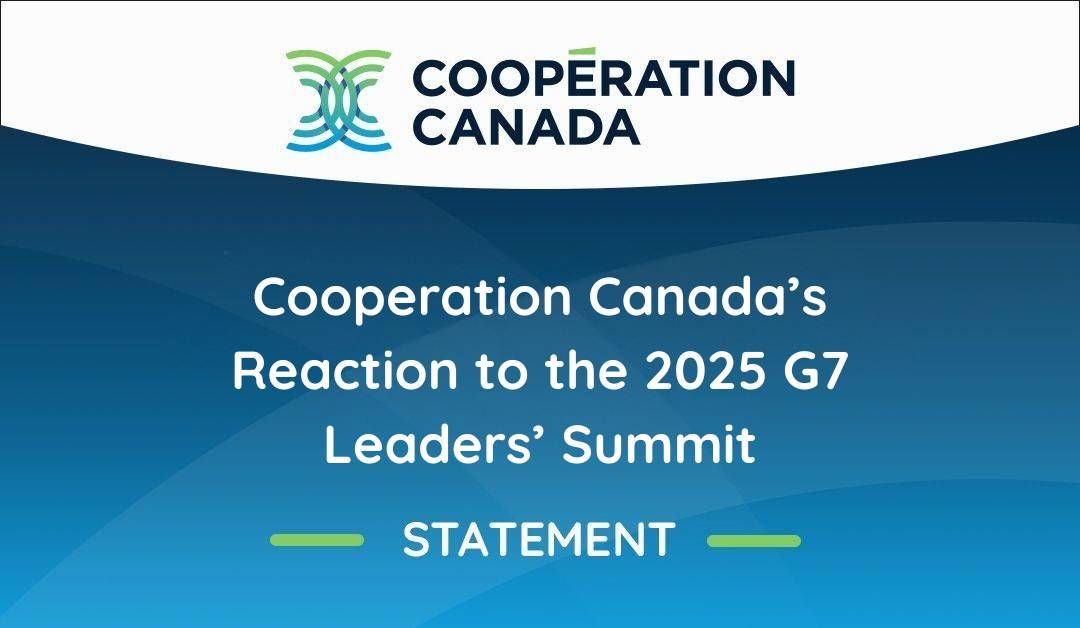The 2025 G7 Leaders’ Summit has concluded in Kananaskis, Alberta, which marked the G7’s 50th anniversary.
The G7 had a chance to lead—but did not meet the moment. In the face of rising humanitarian needs and intensifying climate, conflict and debt crises, the Summit lacked the urgency, ambition and bold vision required to respond to today’s converging crises.
The lack of meaningful dialogue this week on shrinking aid budgets—despite escalating global needs—signals a worrying retreat from international solidarity. The prioritization of military spending without corresponding increases in development assistance is a short-sighted misstep.
The Summit failed to match the ambition of previous summits on development, including the G8 Leaders’ Summit in Kananaskis in 2002, when world leaders placed Africa and bold development cooperation at the heart of their agenda. The mention of debt relief fell far short of the concrete action required to reform global financial systems and address unsustainable debt burdens in low-income countries.
While we welcome Canada’s enhanced support for Ukraine, we are concerned by the lack of attention to crises in Sudan, the Sahel and the Democratic Republic of Congo. Though calls for a ceasefire in Gaza and protection of civilians in the Middle East are positive, we regret the absence of strong commitments to restore humanitarian access and uphold international humanitarian law. We welcome the G7’s opposition to transnational repression—an important affirmation of civic space, human rights and international law.
We commend Canada for its leadership in convening this Summit at a time of great global disruption and for efforts to reflect the complexity of today’s global landscape. We welcome the inclusion of world leaders beyond the G7 and the leaders of the United Nations and the World Bank and note with optimism steps toward stronger G7–G20 alignment. Greater coherence across global governance forums is essential to addressing shared challenges.
“Ultimately, while this Summit was a demonstration of international cooperation at a time of deep global instability, it fell short of the moment. It failed to deliver the collective ambition needed to address escalating humanitarian crises, deepening inequality, conflict and threats to human rights,” said Kate Higgins, CEO of Cooperation Canada.
“Cooperation Canada stands ready to support Canada’s G7 Presidency in the months ahead to ensure it becomes a force for good in a time of global disruption,” she said. “Civil society has a vital role to play in shaping global processes like the G7, and we will continue to advocate for meaningful participation, including at upcoming G7 Ministers’ Meetings, to help build a fairer, safer and more sustainable world.”
Notes to Editors
- Cooperation Canada is the national voice for Canadian international development and humanitarian organizations. Representing over 100 organizations, we convene, coordinate and advocate for effective, inclusive and accountable international cooperation that contributes to a fairer, safer and more sustainable world.
Media Contact
Gabriel Karasz-Perriau, Senior Communications Manager
[email protected]
(514) 945-0309

